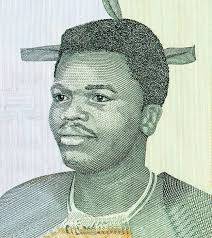5 Countries Named After Dead People
Many countries' names are derived from geographical features, historical events, or linguistic roots. However, some countries bear the names of individuals, many of whom are long deceased. These nations often have rich histories associated with the people they are named after. Here are five countries whose names commemorate the lives and legacies of those who have passed away.
1. **Colombia** – Christopher Columbus
Colombia, located in South America, is named after the famous Italian explorer Christopher Columbus (Cristoforo Colombo in Italian). Columbus is credited with opening up the Americas to European exploration, though he never set foot on the mainland of the continent. The name "Colombia" was first proposed in the 19th century by Venezuelan revolutionary leader Francisco de Miranda, and it was later adopted as the name for the new republic after it gained independence from Spain. While Columbus's legacy is controversial today due to his role in the colonization of the Americas, the country’s name stands as a testament to his historical impact.
2. **Bolivia** – Simón Bolivar
Bolivia is a landlocked country in South America named after Simón BolÃvar, a key figure in the continent's struggle for independence from Spanish colonial rule. BolÃvar, known as "El Libertador," led military campaigns that resulted in the independence of several countries, including Venezuela, Colombia, Ecuador, Peru, and Bolivia. Bolivia was named in his honor following its independence from Spain in 1825, shortly after BolÃvar’s role in the nation’s liberation. His ideals of liberty and republicanism are still celebrated in Bolivia today, with numerous statues, monuments, and even the country's capital, Sucre, holding connections to BolÃvar's legacy.
O 3. **The Philippines** – King Philip II of Spain
The Philippines, an archipelago in Southeast Asia, derives its name from King Philip II of Spain, who reigned from 1556 to 1598. Spanish explorer Ruy López de Villalobos named the islands "Las Islas Filipinas" in 1543 in honor of the king. The Philippines was under Spanish rule for more than 300 years, during which the islands were heavily influenced by Spanish culture, religion, and governance. The name "Philippines" was retained even after the country gained independence in 1898. King Philip’s association with the islands is a reminder of the colonial era, and his name still resonates through the country’s identity.
4. **United States of America** – Amerigo Vespucci
The name "America" is derived from the Latin version of the name of the Italian explorer Amerigo Vespucci. In the early 1500s, Vespucci was one of the first Europeans to suggest that the lands discovered by Christopher Columbus were part of a new continent, distinct from Asia. Though Columbus is often credited with "discovering" the Americas, Vespucci’s writings were influential enough to lead to the continents being named after him. The term "America" first appeared on a map in 1507, and it became widely adopted in reference to the newly identified lands. The United States, as one of the most prominent nations in the Western Hemisphere, carries the name of Vespucci as a testament to his contribution to the geographic understanding of the New World.
5. **Sri Lanka** – King Ceylon (Ceylon)
Although the official name of Sri Lanka (which means "resplendent island" in Sanskrit) does not directly honor a specific individual, the country's former name, Ceylon, is rooted in the legacy of colonial history. The name "Ceylon" is believed to be derived from the Portuguese pronunciation of the Tamil name "Cilón," which may have referred to the ancient Sinhalese kingdom. During British rule, the island was formally known as the British Ceylon. The change to Sri Lanka in 1972, while not named after a dead person, acknowledges the island's deep cultural and historical ties, many of which were influenced by figures such as King Sri Wickrama Rajasinghe, the last monarch before the British took control.
Conclusion
Countries named after historical figures are a reminder of the far-reaching impact individuals have on the world’s geography and politics. Whether through colonization, revolutionary actions, or exploration, these names immortalize the legacies of people who, while long gone, continue to shape the nations that carry their names. From Christopher Columbus to Simón BolÃvar, each of these nations tells a story of history, struggle, and identity.


